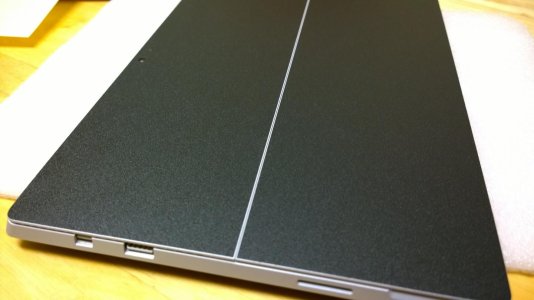Cruncher04
New member
Isn't the point of threshold to make ONE APP rule all form form factors(UI) and processors(x86/64 and arm)?
Not really. The UI paradigms for touch and k/m are just very different. If you would take say Office touch for iPad and would use it on a device with k/m, you would be utterly disappointed. The same applies vice versa.
For example when i connect my Surface 2 to a Monitor+Keyboard+Mouse i always use IE Desktop, while on the go i use Metro IE. Note that both versions use the same codebase, which runs under Win32/Desktop subsystem. Only a small part of IE runs natively under WinRT. Google Chrome is doing the same by the way. As i mentioned already in another post, the WinRT sandbox is much too restricted to develop a browser.
BTW, since we're discussing the capabilities of Windows RT I'd also like to address another bone-headed decision of Microsoft - the name chosen for the OS (and I'm not even talking of the WinRT/Windows RT fiasco).
I would just have called it Windows or Windows on ARM, because thats what it is. No other OS in history has the target architecture as part of ist name. Linux is just Linux for all architectures. Same applies to Android, Windows NT3.xx (available for MIPS, Alpha, x86), VxWorks, ThreadX, BSD, Solaris, QNX etc.
There are actually more misconceptions regarding Windows RT due to the suffix RT as if they just had called it Windows. This very thread should be proof enough.
Just how many people returned their devices because they expected a Windows tablet to be fully capable of running their favourite Windows apps (including alternate browsers and the like), and then were bitterly disappointed when they found out this wasn't possible?
I guess not many. I dont know of any even though i regulary read Surface related message boards and Internet sites. All i ever noticed regarding this is hearsay. More interestingly is, that this argument is mostly brought up by people who understand the difference quite well.
Just because it's capable at this point doesn't mean it was their design plan. If Office had been touch, there likely wouldn't have been a desktop on Windows RT. It was there out of necessity, not out of design.
You still dont get it. Windows is Microsofts designated OS for tablets. There will be no separate OS for tablets. That IS the design plan.
Microsoft said this on several occasions very clearly and it makes much more sense, than assuming they are lazy.
This has absolutely nothing to do with Office.
Last edited:



